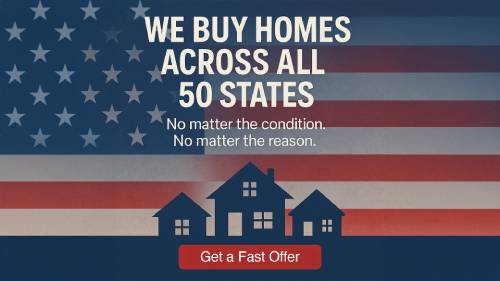Key Takeaways
- Affordability: Mobile homes rent-to-own typically involve lower upfront costs compared to traditional homes, making homeownership more accessible for many individuals.
- Flexibility: This rent-to-own model allows tenants to assess their living situation and make personalized agreements, providing the option to rent without immediate purchasing obligations.
- Immediate Occupancy: Prospective renters can often move into mobile homes quickly, offering a practical solution for individuals needing a fast relocation without the long home-buying process.
- Financial Risks: Rent payments may come with hidden fees like property taxes and maintenance costs, leading to financial uncertainty if the home is not purchased at the end of the lease.
- Maintenance Responsibilities: Renters often remain responsible for maintaining their mobile homes, which can lead to unexpected financial burdens if repairs and upkeep are not accounted for.
- Limited Market Value: Mobile homes tend to depreciate faster than traditional houses, which can limit potential returns on investment and complicate future sales or refinancing options.
Mobile homes offer an intriguing option for those looking to enter the housing market without the hefty price tag of traditional homes. The rent-to-own model provides a unique pathway, allowing us to live in a home while gradually working toward ownership. But like any investment, it comes with its own set of advantages and challenges.
As we explore the pros and cons of mobile homes rent to own, we’ll uncover key insights that can help us make informed decisions. From the flexibility of payment plans to potential hidden costs, understanding both sides of the equation is crucial. Join us as we navigate this alternative housing solution, ensuring we’re equipped with the knowledge needed to choose wisely.
Understanding Mobile Homes Rent to Own
Mobile homes rent to own represents a unique option for those desiring homeownership without the traditional barriers. This approach allows tenants to rent a mobile home with the possibility of purchasing it later, usually after a predefined lease period. We find this structure appealing for individuals seeking flexibility and a potential pathway to ownership.
The key advantage of this model lies in lower upfront costs compared to conventional home purchases. Typically, we can expect a portion of the monthly rent to contribute to the eventual purchase price, allowing renters to build equity over time. For instance, if a mobile home costs $100,000, and we agree on a rent-to-own arrangement that applies $300 of the monthly rent towards the purchase, by the end of a 36-month lease, $10,800 would accumulate towards ownership.
Many mobile homes come with the benefit of lower maintenance expenses, as mobile home parks often cover common area upkeep. Some renters appreciate this lack of immediate financial responsibility while potentially seeing property value appreciation during their lease. However, it’s important to remain vigilant about additional fees and responsibilities that may arise during the rent-to-own period, such as property taxes or park rules.
Understanding state regulations also plays a crucial role in navigating this process effectively. Different regions may have specific guidelines affecting rent-to-own agreements, including rights, obligations, and potential pitfalls. It’s essential for us to be informed and consult local regulations before entering any agreement. Exploring these aspects not only enhances our comprehension but also positions us to make sound, informed decisions about mobile homes and the rent-to-own process.
Pros of Mobile Homes Rent to Own

Mobile homes rent-to-own offers distinct advantages for individuals seeking affordable housing solutions. This model blends the flexibility of renting with the potential for ownership, benefiting those uncertain about immediate investment in real estate. Here are some key benefits of this approach.
Affordability
Affordability stands out as a primary advantage of mobile homes rent-to-own. Typically, the upfront costs associated with mobile homes are lower than traditional houses, making them accessible for a broader segment of the population. Monthly payments often combine rent and a portion of the purchase price, allowing tenants to gradually build equity. For instance, instead of a significant down payment, we may only need a few thousand dollars upfront, which translates into more manageable financial commitments. This structure makes homeownership attainable for those who may struggle with typical financial barriers in the housing market.
Flexibility
Flexibility is another significant benefit of the rent-to-own model. Tenants enjoy the option to rent a home initially while assessing its suitability for long-term living. If circumstances change—such as job relocations or family dynamics—there’s no obligation to purchase the mobile home right away. This adaptability enables families to enjoy stability without the full commitment of ownership. Moreover, the ability to negotiate terms can encourage a more personalized agreement, accommodating individual financial situations or preferences.
Immediate Occupancy
Immediate occupancy offers an appealing advantage in mobile homes rent-to-own agreements. Often, prospective tenants can move into their mobile homes shortly after signing a lease, avoiding the lengthy home-buying process typical of traditional real estate transactions. This quick turnaround supports those needing to relocate quickly, whether due to work or personal circumstances. With many mobile homes available in established parks, we also benefit from existing community infrastructure, enhancing our living experience right from the start.
By focusing on these advantages, we see how mobile homes rent-to-own presents a viable option for many families looking to navigate the complexities of homeownership.
Cons of Mobile Homes Rent to Own
Mobile homes rent-to-own present several drawbacks that potential renters should consider before committing. Understanding these challenges helps us make informed decisions about our housing options.
Financial Risks
Financial risks come with mobile homes rent-to-own agreements. Monthly payments may seem lower than traditional mortgages, but they might also include additional fees that add up over time. For instance, if we’re not careful, we might overlook property taxes, insurance, or maintenance costs, which can inflate our monthly budget. Moreover, if we decide not to purchase the home at the end of the lease, all the money spent on rent often doesn’t contribute toward ownership. This financial uncertainty can hinder our long-term planning and savings.
Maintenance Responsibilities
Maintenance responsibilities can pose challenges for tenants in a rent-to-own agreement. Though some mobile home parks cover common area upkeep, individual homeowners remain responsible for the maintenance and repairs of their units. We’re accountable for all repairs, from minor fixes like plumbing issues to major ones such as roof replacements. This responsibility can become financially burdensome, especially for those unfamiliar with home maintenance or without sufficient funds saved. It’s crucial to assess our capability to manage these duties before entering a rent-to-own deal.
Limited Market Value
Limited market value affects the long-term investment potential of mobile homes. Mobile homes typically depreciate faster than traditional houses, which may limit our future returns if we choose to sell. The resale value often hinges on the condition, location, and market demand for mobile homes in our area. If economic conditions decline, we may face additional challenges when trying to sell the property or refinance our investment. This decline in market value poses a risk, especially if we plan to rely on the home as a primary asset in our financial portfolio.
By weighing these cons against the benefits of mobile homes rent-to-own, we can evaluate whether this housing option aligns with our long-term goals and financial situation.
Conclusion
Navigating the mobile homes rent-to-own landscape offers both opportunities and challenges. We can appreciate the affordable entry into homeownership and the flexibility this model provides. However, it’s crucial to stay informed about potential hidden costs and responsibilities that come with this arrangement.
By weighing the pros and cons thoughtfully, we can make informed decisions that align with our financial goals and lifestyle needs. Whether we see this as a stepping stone to ownership or a long-term living solution, understanding the nuances of rent-to-own agreements is key to ensuring a positive experience. Ultimately, our choice should reflect our unique circumstances and aspirations in the housing market.
Frequently Asked Questions
What are mobile homes rent-to-own?
Mobile homes rent-to-own is a housing model where tenants can rent a mobile home with the option to purchase it after a specified lease period. This approach allows renters to build equity while enjoying the flexibility of renting.
What are the benefits of choosing a rent-to-own mobile home?
Benefits include lower upfront costs, the ability to assess the property before purchase, quick occupancy, and a portion of rent contributing to the eventual purchase price, making it an affordable entry point to homeownership.
What challenges should I be aware of with rent-to-own mobile homes?
Potential challenges include financial risks from additional fees, responsibilities for maintenance and repairs, and the market depreciation of mobile homes, which can limit future investment returns.
How can I evaluate the suitability of a rent-to-own mobile home?
To assess suitability, consider your budget, long-term financial goals, and lifestyle needs. Reviewing lease terms, additional fees, and maintenance obligations can also help in making an informed decision.
Are there specific regulations for rent-to-own agreements?
Yes, regulations vary by state and can impact rent-to-own agreements. It is important to understand local laws and guidelines to ensure compliance and protect your rights as a tenant or future homeowner.






